Silent, but vibrant: A look into the Coastal Bend's deaf and hard of hearing community
There were more than 2,000 deaf and hard of hearing people in the Corpus Christi area in 1980. Today, there are more than 13,700.
Located on McArdle Road behind La Palmera mall is the Deaf and Hard of Hearing Center. It opened in 1984 to provide social services and recreation assistance to residents in the Coastal Bend.
Using his hands and facial expressions, executive director Jaime Lugo answered questions about the facility. Lugo's interpreter and assistant, Alex Peña, watched and interpreted that the 39-year-old center provides a multitude of services for 26 surrounding counties.
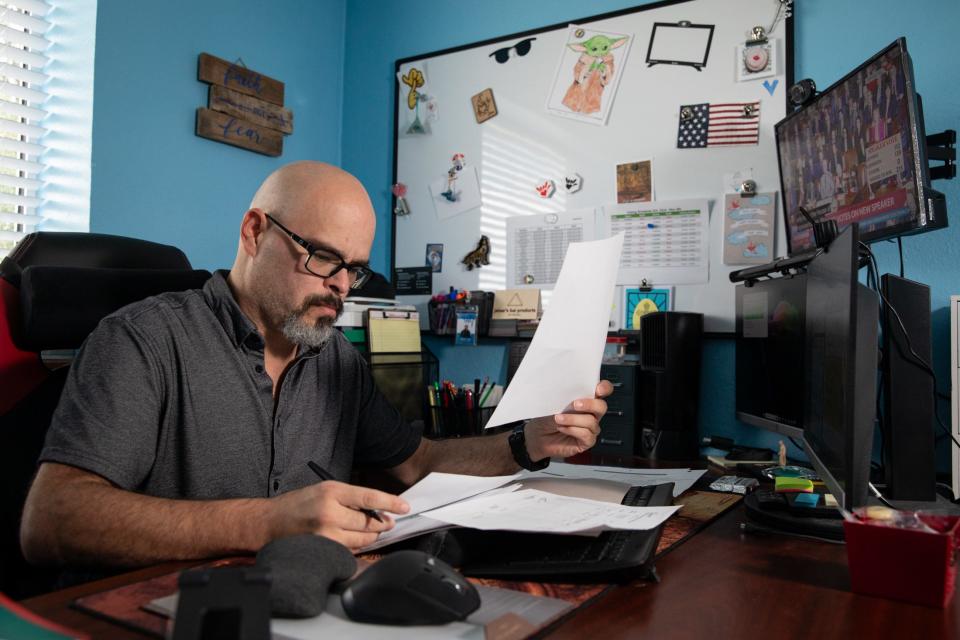
"We encourage our deaf and hard of hearing community to take part in our events and services we have to offer," Lugo signed as Peña interpreted. "All of our services are free, and not everyone might know that. Our hope is everyone who enters feels welcome and comfortable in the community."
Growing up deaf or hard of hearing is not something that is as worrisome as it might've been four decades ago, Lugo said. With the center's resources, Corpus Christi ISD's Regional Day School Program for the Deaf, American Sign Language classes taught within high schools and a credited course at Del Mar College, communication between deaf and hearing people is becoming "much easier."
Deaf school needed in the Coastal Bend in late 1960s
In December 1969, a survey was conducted in Nueces, Aransas, Bee, Brooks, Duval, Jim Wells, Kenedy, Kleberg, Live Oak, McMullen and San Patricio counties to see if a need for a day school for deaf children was needed.
A month later, Nueces and San Patricio counties had enough deaf pupils to create a separate school. Nueces had 38 eligible students and San Patricio had 12. As well, Aransas, Jim Wells and Kleberg counties had six students combined.
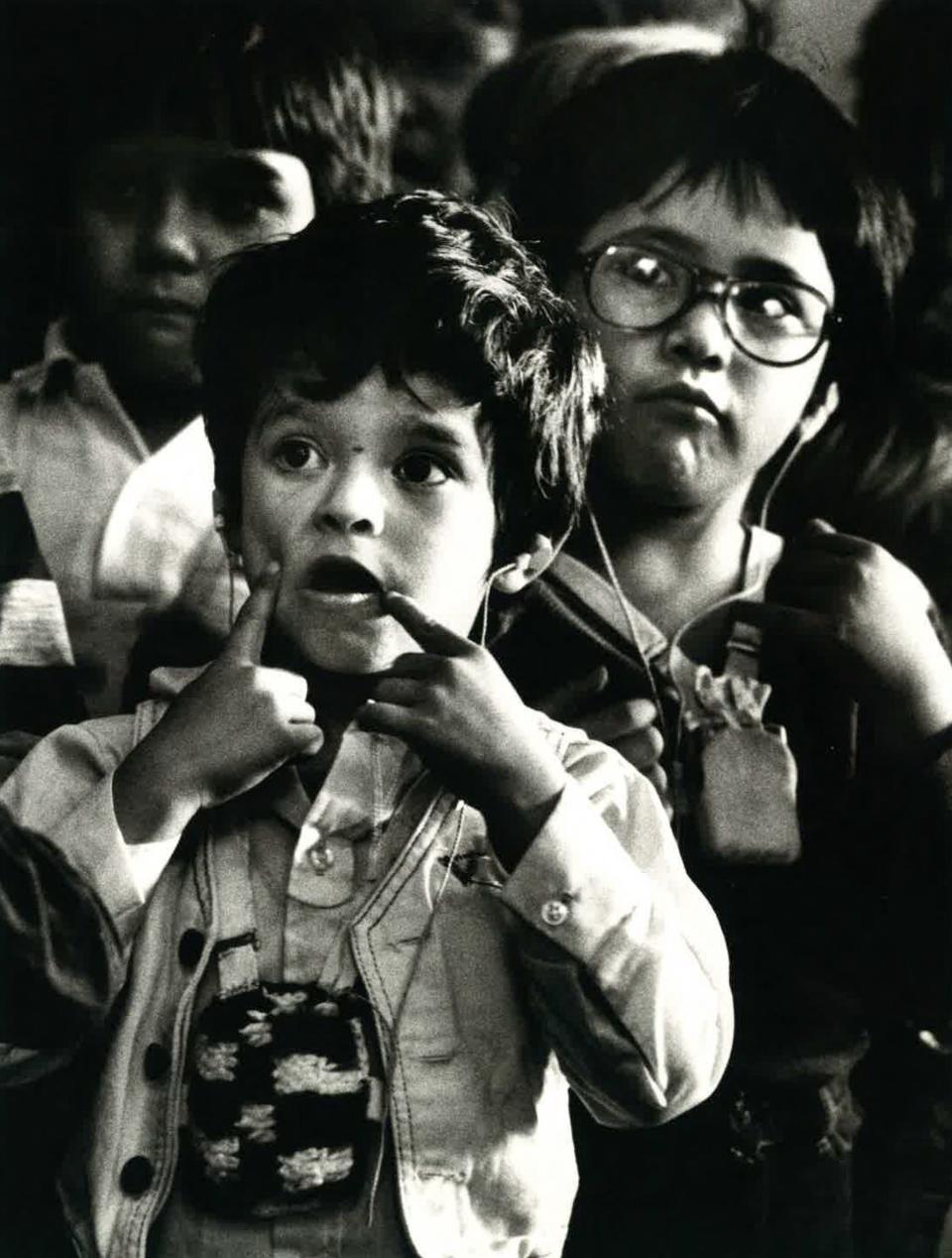
In March 1970, Corpus Christi ISD agreed to hold the establishment of the Nueces-San Patricio Bi-Countywide Day School for the Deaf at Calk Elementary, now Calk-Wilson Elementary. About 60 students would benefit from the new institution and be divided up into six classes beginning the 1970-1971 school year.
The Caller-Times reported that children between 6 and 14 years old from the Coastal Bend benefited from the school in October 1970.
"The school's aim is to allow the children to enter the world of speaking people with as much advantage as possible," counselor George Wetzel told the Caller-Times in an interview.
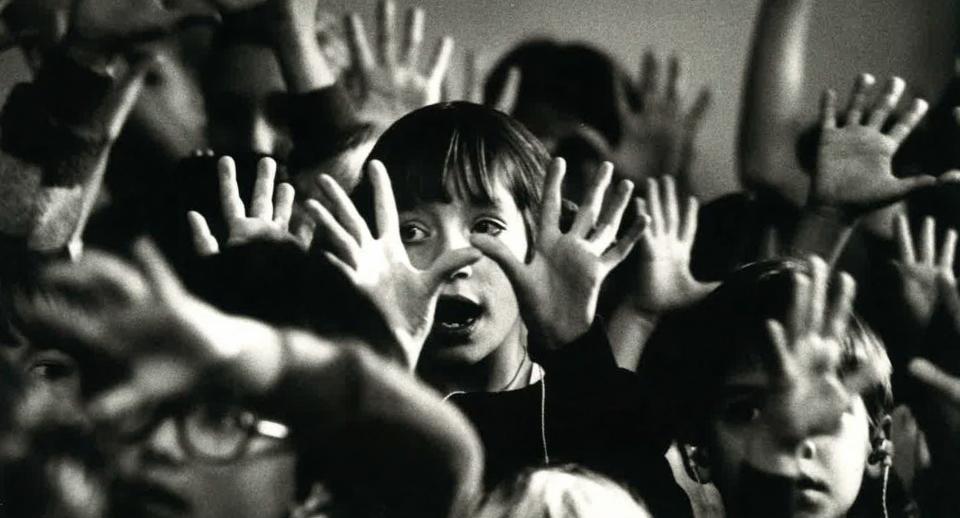
Three years later, Calk Elementary had grown to serve 64 students with eight classrooms and nine teachers.
Today, the school is now called the Regional Day School Program for the Deaf and serves more than 100 students in more than 30 surrounding school districts.
Regional Day School Program for the Deaf
Kimberley Patella, coordinator for the Regional Day School Program for the Deaf, has her office at Webb Elementary on the Southside of Corpus Christi. Webb is one of the locations to help deaf and hard of hearing students. The other two campuses are Kaffie Middle School and Veterans Memorial High School.
Patella said the program helps students from babies to 21 years old, with specialized help for those requiring interpreting services, specialized instruction, audiological management services, counseling services and speech-language services.
Students that are deaf, hard of hearing or deaf and blind are able to use the resources and go to three different schools, depending on their age group.
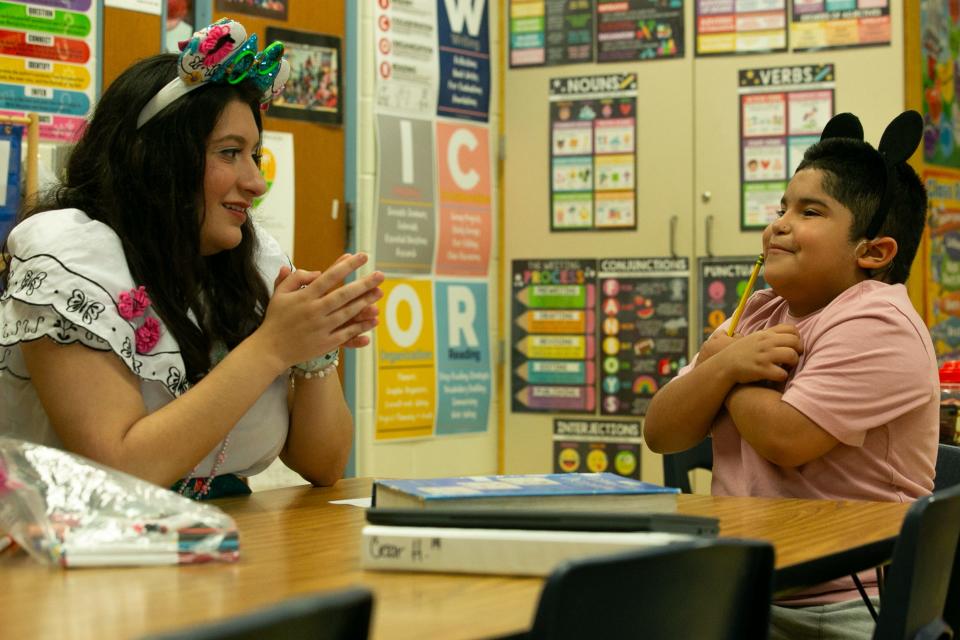
The purpose of the program is to provide a specialized instruction for students in need, Patella said.
"A lot of our students are coming from rural areas," Patella said. "The local school districts bus them to CCISD for these particular instructions. We have the Texas School for the Deaf in Austin, but we find a lot of our families want to keep their children here at home. We were created to bring a relief to those school districts."
As for a normal day for students in the program, Patella said students at Webb Elementary are able to mingle with hearing students.
"We recognize students need that specialized instruction, but they also need to connect with students," Patella said. "The academic need and social/emotional need of a student go hand-in-hand."
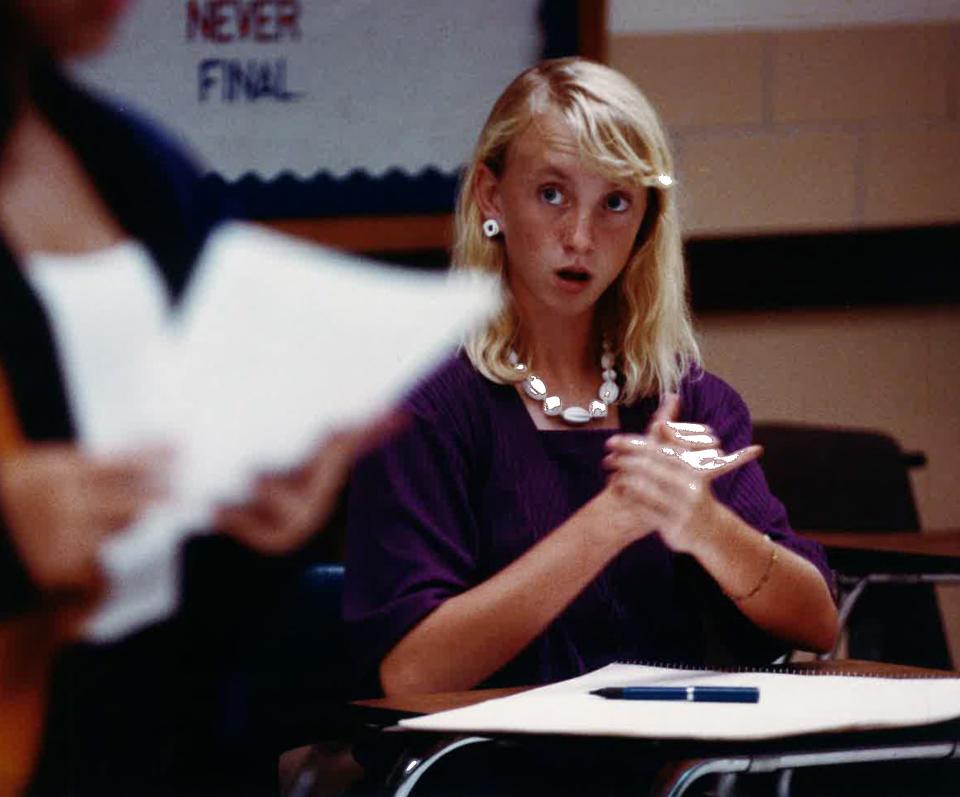
Patella said students at Webb Elementary begin their day eating breakfast in their mainstream classroom, a classroom with hearing students and a hearing teacher who isn't certified in deaf-education. They will enjoy their time with their peers and then go to a deaf-education classroom to receive specialized instruction designated for them.
If parents are concerned about their children's hearing, Patella said to reach out to her. She said the program is always available to answer questions and ready to serve any child in need.
Deaf and Hard of Hearing Center
The Corpus Christi Area Council for the Deaf planted its roots in 1978.
Along with that council, the Coastal Bend Silent Club had been created 17 years prior by a dozen deaf people in Corpus Christi, Robstown and Taft. The two groups floated around the Coastal Bend ― but neither had a facility to fully function.
It wasn't until April 1984 when the Deaf and Hard of Hearing Center opened in Mt. Vernon Park on McArdle Road.
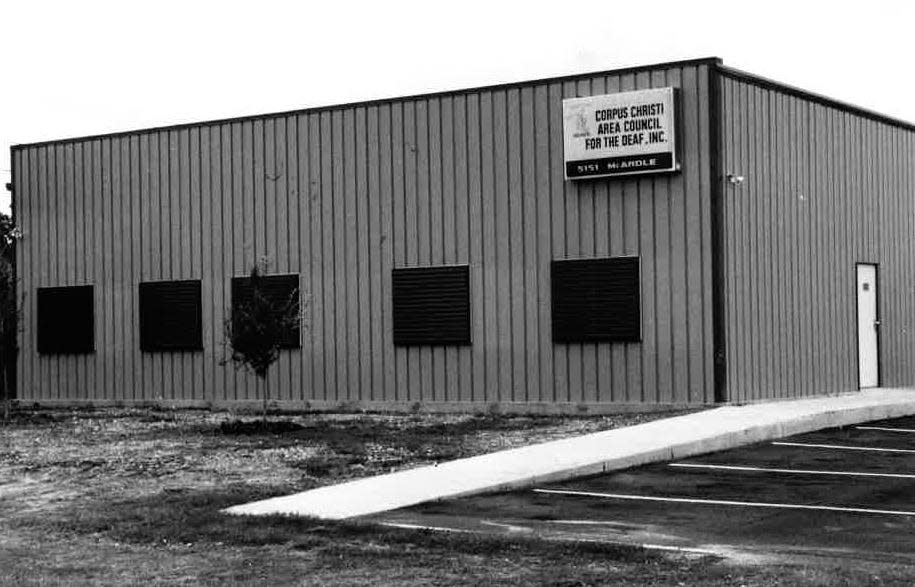
In an interview with the Caller-Times in November 1992, Susan Tiller, former executive director, said, "Before the center opened, there was no place in the community for hearing-impaired individuals to gather for social services and recreational events."
Nearly 40 years after the center opened, the deaf and hard of hearing community is still being served to its best, Lugo said.
Some free services the center offers include an access specialist to help provide advocacy to anyone in need; a technology specialist to help people become accustomed with their hearing loss; and a specialized telecommunications assistance program specialist who provides free phones to individuals for communication purposes.
As well, free programs at the center include youth programs during the summertime, a signing class for adults with their babies and toddlers and a senior citizen program on Wednesdays.
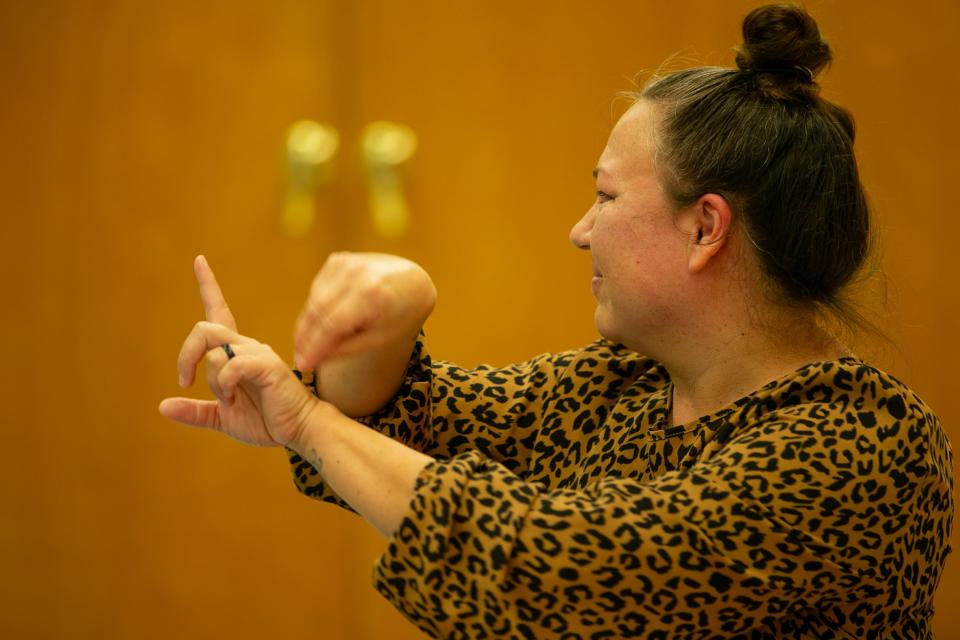
Mary Mesmer and Aurelio Sirildo are two community members who are part of the senior program. The two meet with other friends of theirs to socialize and play board games, like trionimoes — a variant of the tile-based game dominoes.
Mesmer, 91, was born in Illinois. She moved to Corpus Christi in 2022 and said she's fallen in love with the community.
"My husband passed away and my friends dwindled as well, so — at times — I may feel like I'm by myself but I remember I have friends here," Mesmer signed as Peña interpreted. "The community here makes me very happy. I get to come here every Wednesday and see my friends. That's enough for me to keep going."
Sirildo, 56, said he is from Gonzalez but moved to Austin and lived there most of his life since he attended the Texas School for the Deaf. He graduated in 1976 and moved to Corpus Christi six years ago.
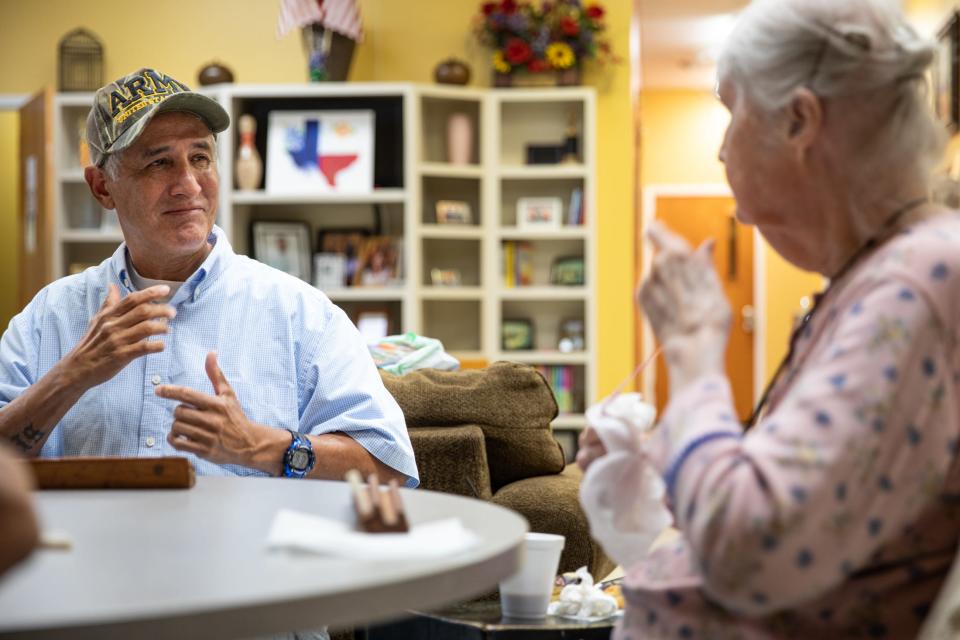
When he moved to the Sparkling City by the Sea, Sirildo said he came to the Deaf and Hard of Hearing Center and learned how to access help. When in Austin, he said the community was different and not as easy as it is here.
"Austin is great, but more help is offered and provided here," Sirildo said as Peña interpreted. "Here, they helped me find a job and set up doctor's appointments. The community here is better and easier for me to interact with."
Lugo said in 2019, a second location opened in the Rio Grande Valley to help deaf and hard of hearing people in that area.
"Every program and service we have is free," Lugo said. "We get funding through grants, our fundraisers and supporters who donate. We are also an interpreting agency. We provide sign language interpreters to the community. We use that to help support the deaf center and offer services to the community. We're here to help anyone who needs it."
ASL classes and DMC
Peña graduated from Del Mar College in 2017 with her associate degree in interpreter preparation. She said she decided to become an interpreter because she was inspired by her older brother and her time in high school.
"I was first introduced to ASL by my brother, he taught me the alphabet and basic signs when I was in middle school and he was a sophomore at King," Peña said. "The following year when I went to King as a freshman, I took ASL classes right away because I was interested."
Jerri-Ann Gonzalez, an American Sign Language teacher at Miller High School, said there are various reasons for people to learn sign, but the main one is so that deaf culture is brought into the community.
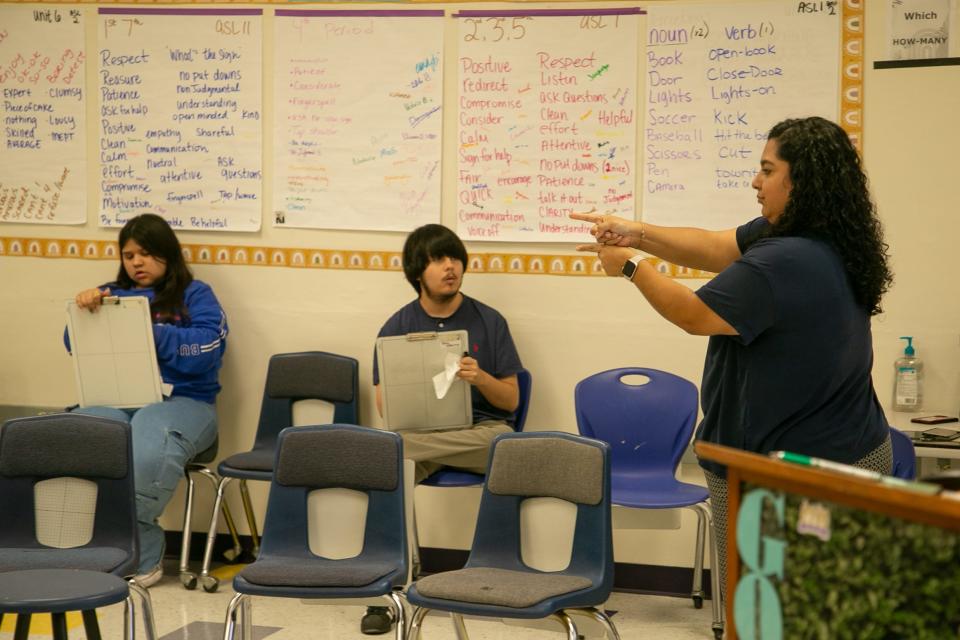
"Students don't get to learn about deaf culture anywhere aside from Miller, King and Veterans Memorial," Gonzalez said. "We're able to take that knowledge and use it in their everyday life."
Gonzalez teaches ASL 1 through ASL 3 at Miller High School, with classes ranging from 19 to 30 students.
Two of Gonzalez's students, Gabriella Perez and Zadejah Lomax, both said sign language seemed like a fun thing to learn that could be useful in the future. Lomax said she plans on being a nurse after she graduates and feels knowing sign will be helpful in her field.
"It's important because we have so many different languages in the United States," Perez said. "Knowing ASL, you're able to communicate with such a small group and extend that gap between us."
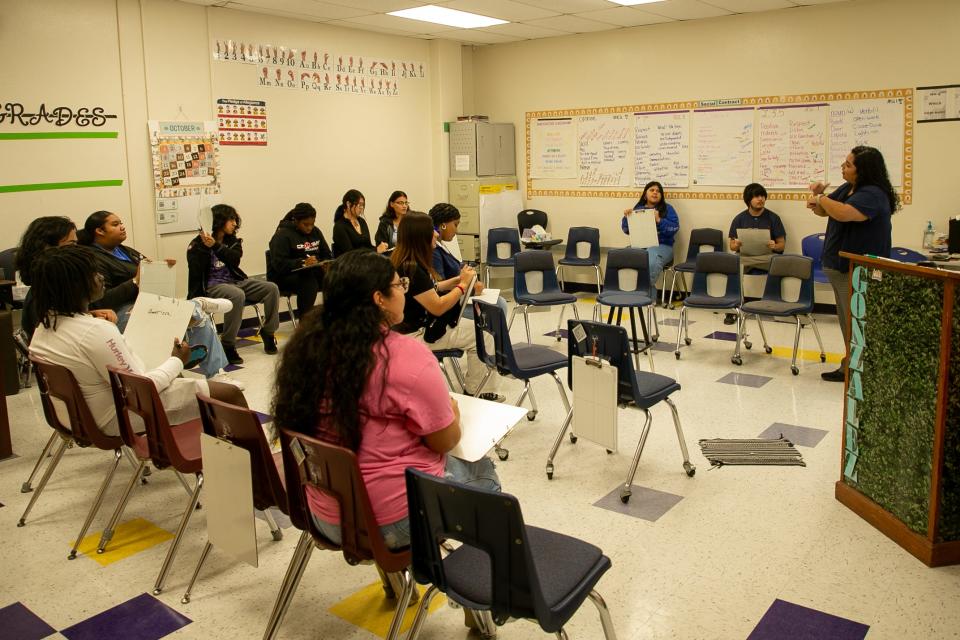
After Peña graduated from King, she found out that Del Mar College had a program for an ASL interpreter. She said she enrolled and began her training and education to learn more about the history of ASL, deaf culture, the language and interpreting skills.
Linda Lugo, program coordinator and assistant professor ASL & interpreter preparation at Del Mar College, said knowing sign language enriches people's lives in many ways.
"You get to build relationships with people who are deaf and hard of hearing," Linda Lugo, Jaime Lugo's sister, said in an email. "Especially for parents with children who are deaf or hard of hearing, it will create a stronger bond between them. Learning ASL and deaf culture is important because it helps to bridge the gap between deaf and hard of hearing people and those who can hear."
She said learning sign encourages mutual respect between both sides while promoting understanding and acceptance among members of society.
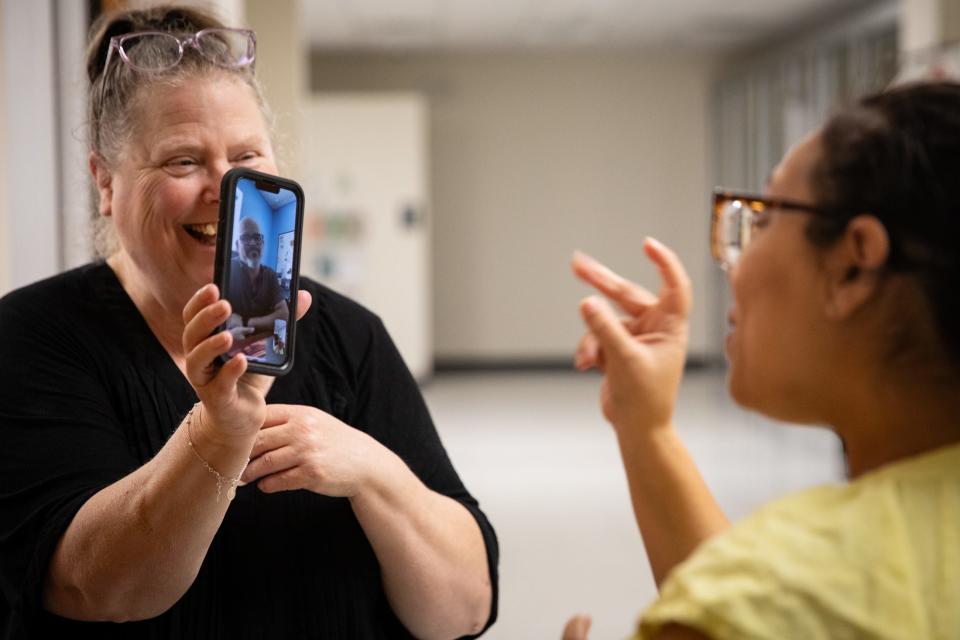
"Sign language is definitely valuable for those working in public roles such as police officers, paramedics, nurses, educators and social workers," Linda Lugo said. "I can’t emphasize how essential it is for them to be able to communicate with deaf and hard of hearing people."
As for people considering becoming an interpreter, Linda Lugo said there is a growing demand for people, especially in Corpus Christi.
"Interpreting itself is a highly rewarding field, as it involves helping people communicate and understand each other," Linda Lugo said. "It breaks down linguistic and cultural barriers. Whether it's helping a doctor converse with their patient or helping a student get full access to education in college, the work of an interpreter can have a huge impact on people's lives."
'The center made me a new person'
The deaf and hard of hearing community may be silent, but they are vibrant and lead normal lives like hearing people, Linda Lugo said.
Sirildo said throughout his life, he has worked odd jobs just like everyone else. He's done janitorial work, worked at H-E-B and been a dishwasher at a restaurant. All while being with his family outside of Corpus Christi.
But when he entered his 50s, he knew it was time to become independent.
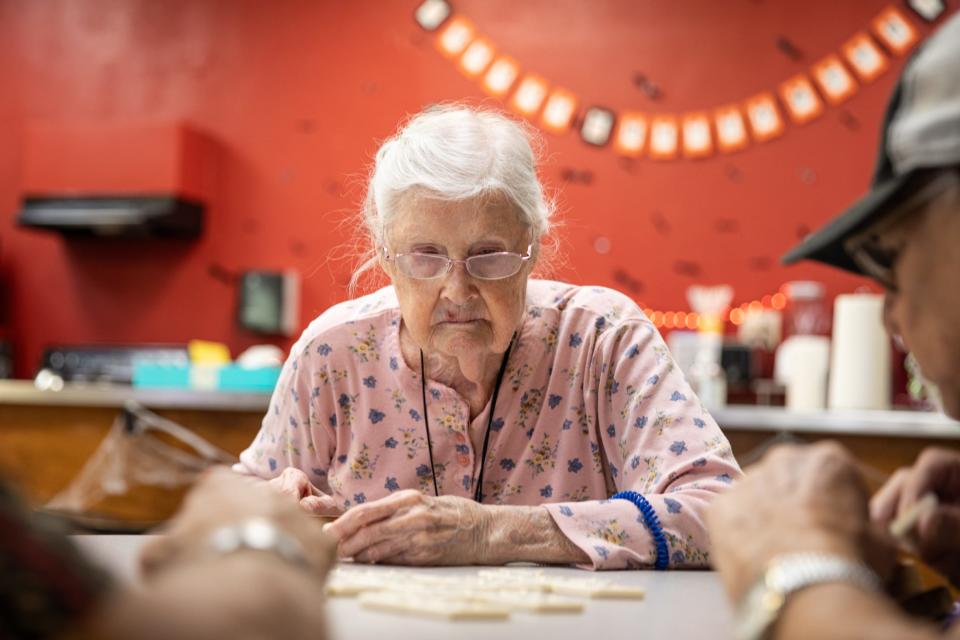
"After just three months of living in Corpus Christi by myself, I knew I loved it," Sirildo said. "I come here, I go to church — I stay busy. I'm comfortable here and I'm finally independent. I have a happy life here."
Mesmer echoed Sirildo's words and said Corpus Christi's deaf and hard of hearing community has changed her since moving. She said the Deaf and Hard of Hearing Center has helped her with making friends and interacting with people.
"Being here helps me," Mesmer said. "My family has told me they don't know me anymore since I started coming here. It's sometimes hard to imagine, but the center made me a new person."
RELATED COVERAGE
More: Facemasks create challenges for deaf, hard of hearing in South Texas
More: Skidmore-Tynan's Marcus Gabriel set for future success at Gallaudet University
John Oliva covers entertainment and community news in South Texas. Contact him at john.oliva@caller.com or Twitter @johnpoliva.
Consider supporting local journalism with a subscription to the Caller-Times.
This article originally appeared on Corpus Christi Caller Times: A look into the Coastal Bend's deaf and hard of hearing community

